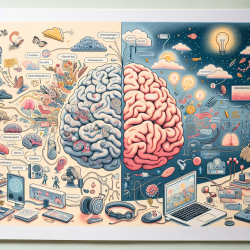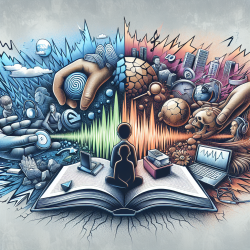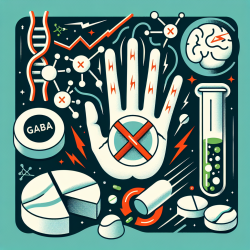Understanding Corticobasal Degeneration: A Rare Neuropsychiatric Challenge
Corticobasal Degeneration (CBD) is a rare neurodegenerative disorder characterized by a combination of movement disorders and cognitive impairments. This condition presents unique challenges for practitioners due to its low incidence and prevalence worldwide. A recent case study from Colombia, detailed in the research article "Neuropsychiatric Aspects in a Patient Diagnosed with Corticobasal Degeneration: Clinical Case of Low Incidence and Prevalence in Colombia," provides valuable insights into the neuropsychiatric aspects of CBD and highlights the importance of timely and accurate diagnosis.
Key Findings from the Case Study
The case study focuses on a 70-year-old female patient initially misdiagnosed with Alzheimer's and Lewy body dementia. Upon further investigation, it was determined that her symptoms were more consistent with CBD. The patient exhibited severe neurocognitive deficits, particularly in executive functions, immediate verbal memory, and visuospatial functioning. Neuroimaging studies revealed severe cortico-subcortical atrophy, further complicating her condition.
The study underscores the necessity of a multidisciplinary approach to diagnosis and treatment, emphasizing the need for functional neurorehabilitation plans aimed at improving quality of life (QoL). This involves addressing both neurocognitive and neuropsychiatric symptoms, such as depression and anxiety, which are prevalent in CBD patients and significantly impact their QoL.
Implications for Practitioners
Practitioners working with CBD patients should consider the following strategies to enhance their practice and patient outcomes:
- Early and Accurate Diagnosis: Misdiagnosis is common in CBD due to overlapping symptoms with other neurodegenerative disorders. Practitioners should employ comprehensive neuropsychological evaluations and neuroimaging studies to differentiate CBD from similar conditions.
- Multidisciplinary Approach: Collaboration among neurologists, psychologists, and occupational therapists is crucial. This team approach ensures that both motor and cognitive symptoms are addressed, enhancing the patient's overall well-being.
- Functional Neurorehabilitation: Develop individualized rehabilitation plans focusing on cognitive domains such as attention, memory, and executive functions. These plans should aim to slow disease progression and improve daily living activities.
- Addressing Neuropsychiatric Symptoms: Depression and anxiety are common in CBD and can exacerbate cognitive decline. Practitioners should incorporate psychological interventions to manage these symptoms effectively.
Encouraging Further Research
Given the rarity of CBD, there is a pressing need for more research to understand its pathophysiology and develop targeted interventions. Practitioners are encouraged to contribute to this body of knowledge by documenting case studies, participating in clinical trials, and collaborating with research institutions.
To read the original research paper, please follow this link: Neuropsychiatric Aspects in a Patient Diagnosed with Corticobasal Degeneration: Clinical Case of Low Incidence and Prevalence in Colombia.










